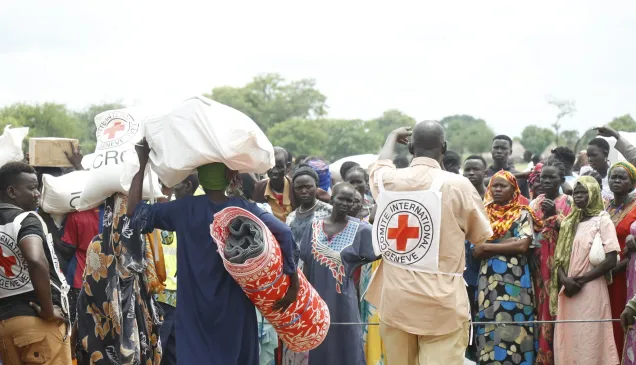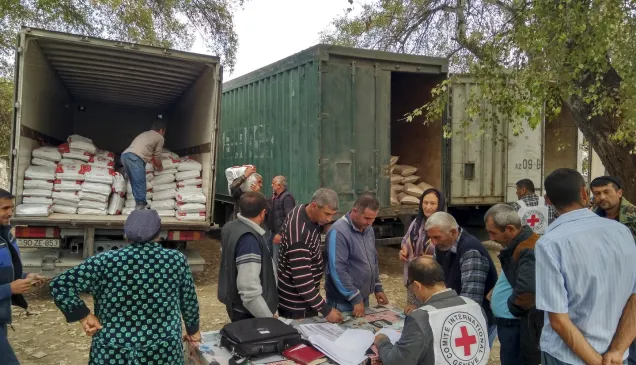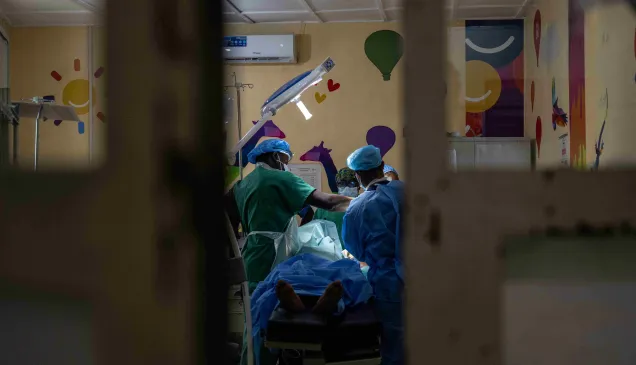Mozambique: 2023 in pictures
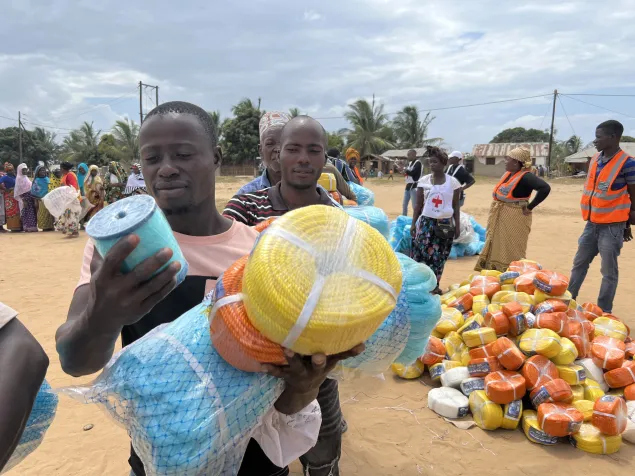
Mocímboa da Praia is one of the hardest-hit towns, facing a humanitarian crisis due to the destruction of infrastructure, lack of basic services and the scarcity of livelihood opportunities. The ICRC distributed fishing kits to 840 families, most of whom had returned after fleeing their villages.
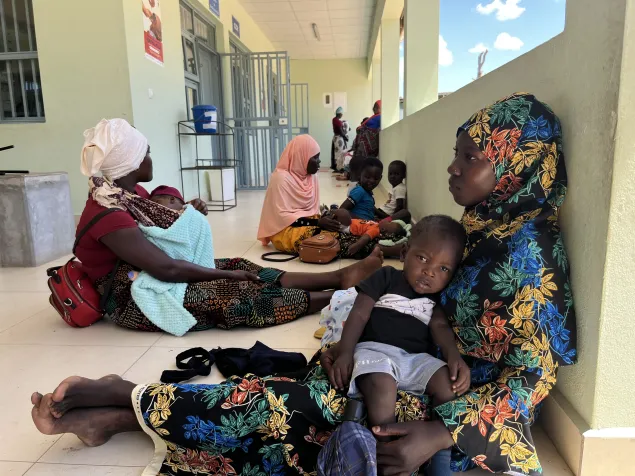
Improving access to healthcare
We expanded and rehabilitated Chuiba health centre, in Pemba, among others, to improve access to medical care for the population affected by the armed conflict in Cabo Delgado, northern Mozambique. In Chuiba, around 28,000 people, including displaced people and residents, have better access to healthcare.
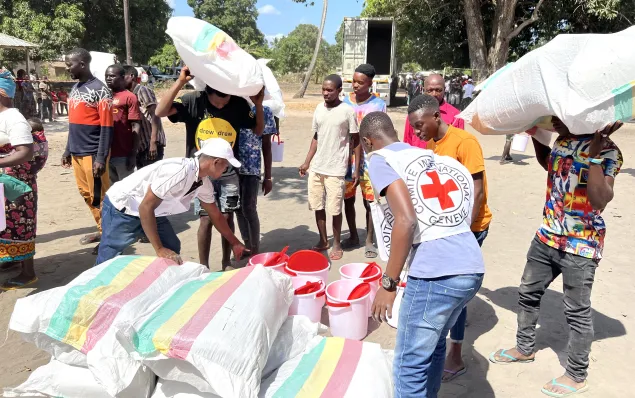
Assistance to restart lives
In Awasse, in Mocímboa da Praia district, we distributed kits with essential household items to 690 families to help them start over after returning home.
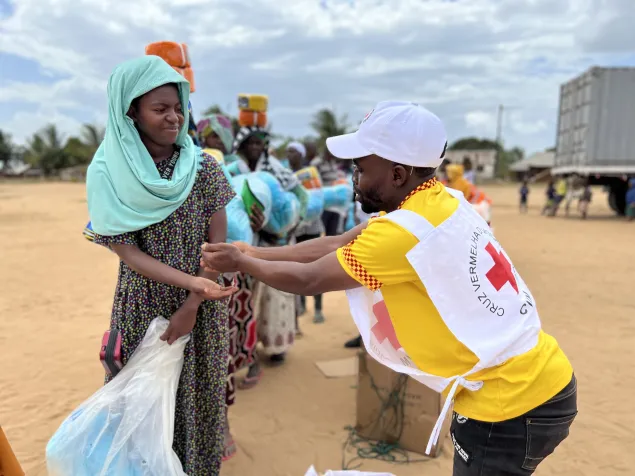
Working with the Mozambican Red Cross
We work alongside the Mozambican Red Cross and volunteers are always at the forefront of our humanitarian activities.
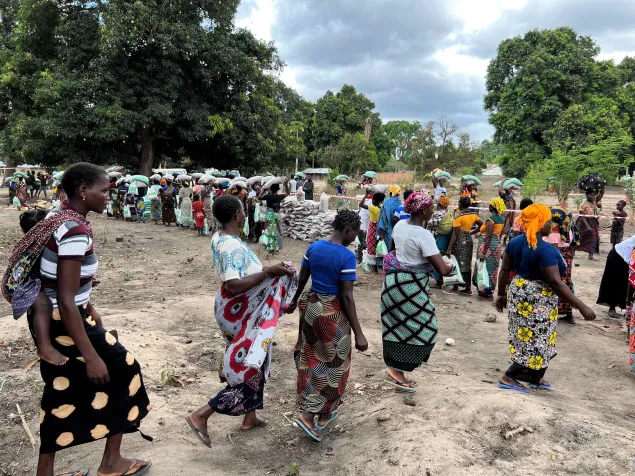
Distribution of agricultural material
To help improve the livelihoods of communities we distributed agricultural material to 5,000 families in Mocímboa da Praia, Mueda and Montepuez, districts affected by the armed conflict in Mozambique. Each household received maize, bean, and sesame seeds, as well as hoes.
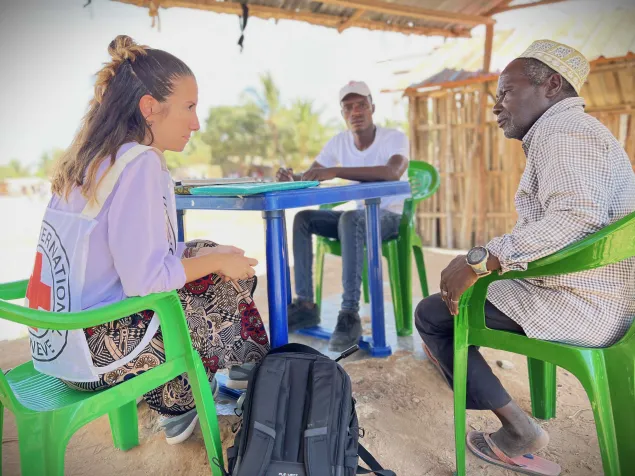
Supporting families separated by armed conflict and violence
Finding loved ones separated by conflict is a significant challenge. In Mozambique, we continue to work on family reunifications for people looking for their relatives and we do so with volunteers from the Mozambican Red Cross by opening search requests.
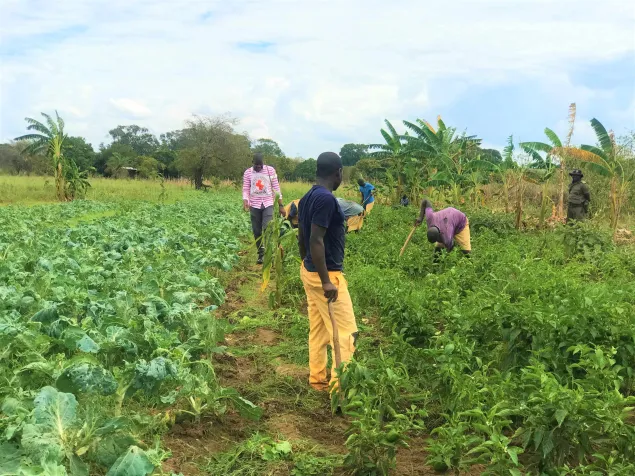
Dignity for people deprived of freedom
We visit places of detention in Mozambique to help ensure that the dignity of people deprived of freedom is respected. In Mieze, we help to improve the nutritional situation of detainees through prison kitchen gardens.
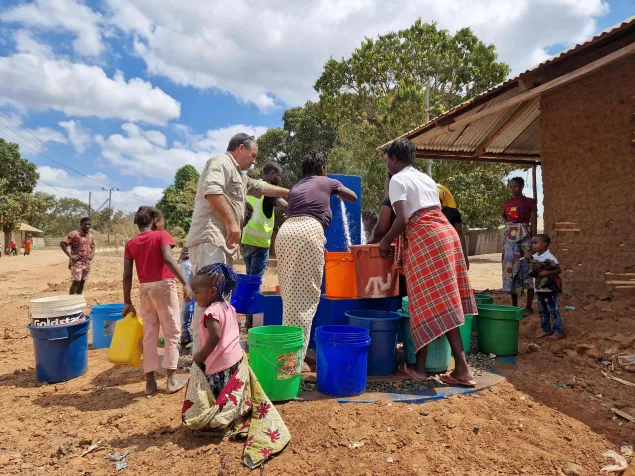
Improving access to water and sanitation
We improve access to water for communities affected by the armed conflict in Cabo Delgado by building or rehabilitating water supply systems.
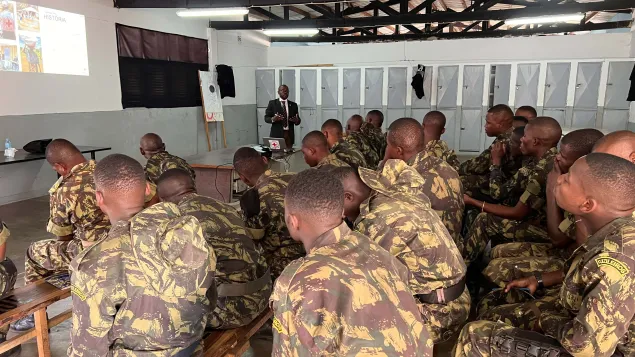
Respect for International Humanitarian Law (IHL)
We engage with the Mozambican Defence and Security Forces, the judiciary, government authorities, parliamentarians, academics, and religious circles, as well as the Interministerial Commission on Human Rights and International Humanitarian Law, to encourage knowledge of and respect for international law.
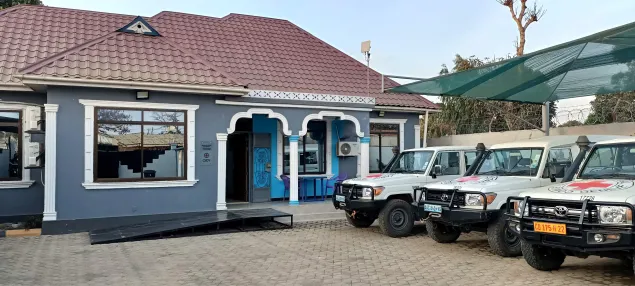
Expanded operations
We expanded our operations to the north of Cabo Delgado. We opened the office in Mueda, which serves as a strategic operational base, enabling a more efficient and effective humanitarian response for the most vulnerable people in the region.
The population of Cabo Delgado continues to suffer the effects of armed conflict. The humanitarian consequences range from displacement to the destruction of essential infrastructure and the loss of livelihoods.
Around 850,000 people are still internally displaced, and 1 million people are extremely vulnerable due to the impact of the conflict. In addition, 570,000 people have returned to their places of origin throughout the province but face similar vulnerability to those still internally displaced.
The need for livelihoods, shelter, water, food, and other emergency aid is critical.
To respond to humanitarian needs, we continue to provide emergency assistance and support with livelihoods, as well as improve access to healthcare and water throughout Cabo Delgado province to help internally displaced people and returnees improve their living conditions.
We also support family reunifications and promote International Humanitarian Law (IHL) through engagement with the armed forces and other key actors, as well as visit places of detention to help improve the living conditions of people deprived of their freedom.
These photos show the ICRC's commitment to support communities in need of help amid the consequences of armed conflict.

